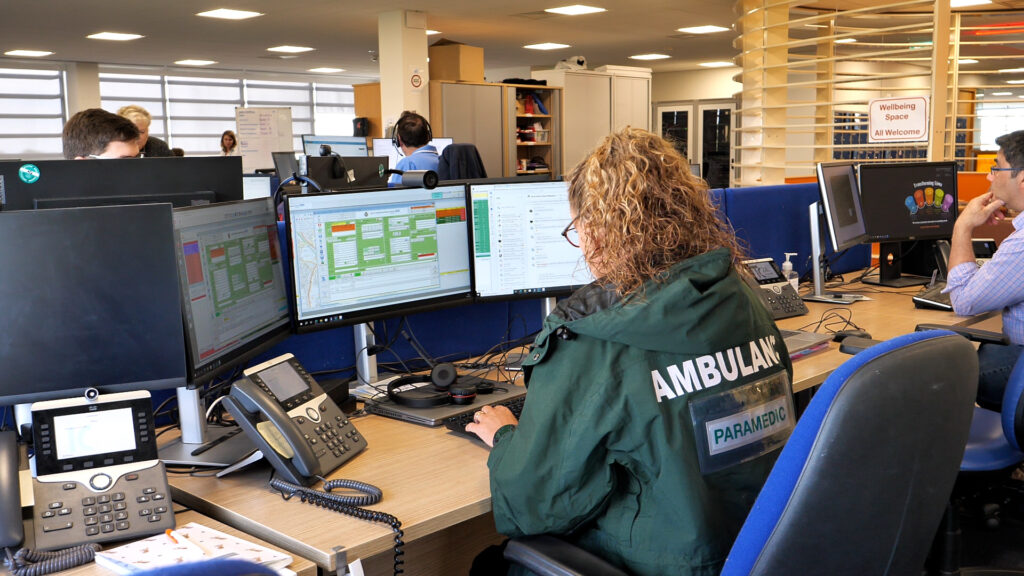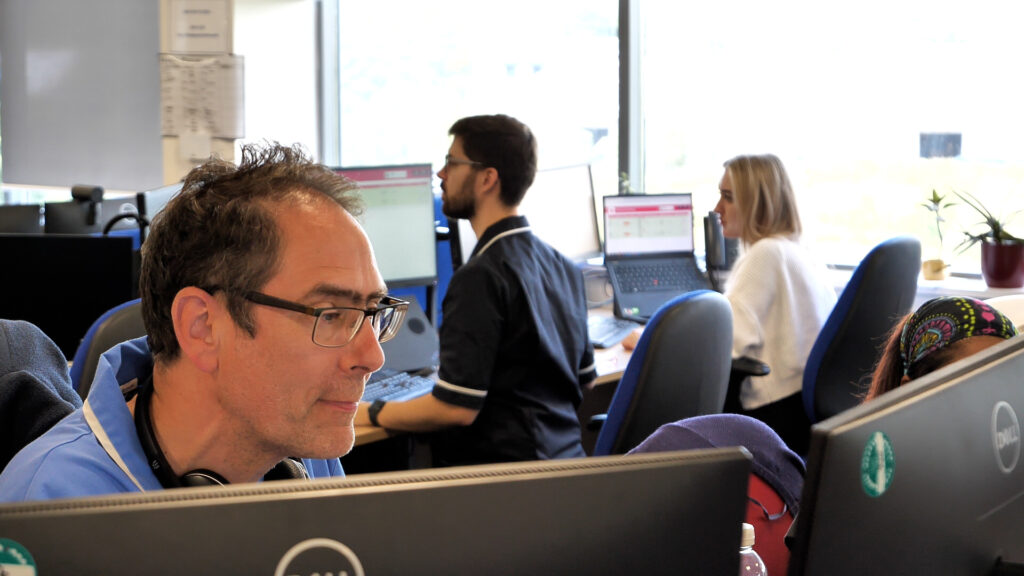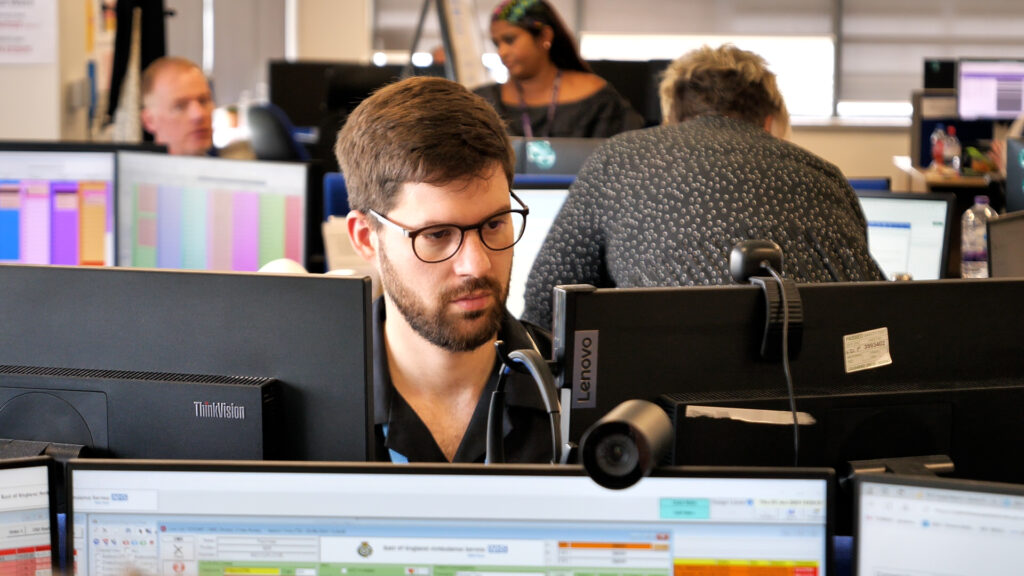A new NHS initiative in Norfolk and Waveney, where patients receive urgent care in their own home, is helping 90% of people referred to it, avoid going to hospital unnecessarily.
The Single Point of Access scheme allows East of England Ambulance Service (EEAST) clinicians to make a single phone call to:
- Speak to a clinician to agree the best care pathway for a patient
- Review patient’s medication requirements via clinical conversation with senior clinician, including access to different drugs
- Book patients into ‘virtual ward’ care which offers care at home that would otherwise be received in hospital, including access to a senior clinician (assessment and diagnostics) and drugs that would be administered at hospital.

Without the Single Point of Access scheme, most of these actions would usually require taking the patient to an accident and emergency department. This scheme keeps people out of hospital and in their own homes where they are more comfortable.
Pete Bumphrey, Business & Partnerships Lead for the East of England Ambulance Service (EEAST), said: “It’s another conversation that our clinicians can have to be certain about what is the best way to treat a patient, and the doctors are working from the same location as the urgent community care services are based, so they can make decisions about capacity based on real-time information.
It’s the latest development led by the Unscheduled Care Co-ordination Hub (UCCH). The hub has been running for one year and involves clinicians from different health and care providers working together to ensure patients receive the best care in the right place. Since its inception the UCCH has helped 10,000 patients and prevented more than 7,500 unnecessary ambulance dispatches.

The hub is now working with Virtual Wards, Network Escalation Avoidance Team (NEAT), and Urgent GP services and its aiming to increase support for care home patients, the ambulance service, and acute hospital trusts.
This will help both patients and healthcare professionals to navigate the local Integrated Care System (ICS) and all of its services. When patients access healthcare through 999, NHS 111, community, primary care, or – eventually – acute hospital emergency departments, they can be referred to UCCH to ensure they get the most suitable care for their needs.
The UCCH is run in partnership by NHS Norfolk and Waveney ICB, Integrated Care 24 (IC24), EEAST, Norfolk County Council, Norfolk Community Health and Care NHS Trust and East Coast Community Health Care.
This work has been recently highlighted by the Urgent Health UK Awards, with IC24 being announced as a finalist in the Partnerships category.

Ross Collett, Director of Urgent an Emergency Care for NHS Norfolk and Waveney Integrated Care Board (IC), said: “This system collaboration is about joining up different parts of our NHS from the ambulance service, NHS 111, GP Out of Hours service, community services and our hospitals to ensure patients receive the right care, right place and right time.
“It leads to more direct referrals to the care people need, quality treatment in people’s own homes without the need to be admitted to hospital and overall improved patient health outcomes. It will also allow ambulance crews, working alongside their other NHS colleagues, to treat patients quicker so that they can get back out on the road and help other patients who require emergency care.”
The service is available 8am-8pm 7 days a week and 90% of patients treated through the Single Point of Access scheme in the two-month trial avoided being admitted to hospital – 6% more than the national average.
This comes in the lead up to winter where health and care services tend to experience increased demand and getting people the right care in the right place is even more important.
IC24 host the hub at their call centre at Reed House on Broadland Business Park with local clinicians from lots of different services working together to use their clinical expertise to help patients referred into the UCCH.
Dan Hubbard, Interim Director Integrated Urgent Care for IC24, said: “The co-location of clinical teams has been brilliant in supporting quicker decisions allowing patients to receive the right care in the right place.
“The colder winter months will see a rise in illness across our population, which increases demand on our health and care services. This clinical collaboration will support avoiding unnecessary admissions and enable care to be delivered at home through early access to senior clinical support and the multi-disciplinary team within the Care coordination hub.”
Norfolk and Waveney joins other similar schemes EEAST works with alongside ICBs in Mid and South Essex, Suffolk and North East Essex and Cambridge and Peterborough.
